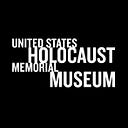“Night,” Elie Wiesel’s Enduring Testimony
Elie Wiesel’s Night — brief and arresting — was one of the first ways America would learn about the Holocaust.
Although today the book is a universal fixture on school curricula and even a former Oprah’s Book Club selection, it was actually a text that struggled to find a publisher — and, more importantly, an audience — when it was written.
In the late 1950s, there was not yet a name for the orchestrated murder of six million European Jews. There were no departments of Holocaust studies at American universities, and there were no proliferation of books, histories, and films to grapple with a chapter of history that would soon be understood as modernity’s darkest.
A short memoir by an obscure, 30-year-old Franco-Romanian survivor — originally written in Yiddish, then translated into French — was thus a difficult sell. American readers could not yet comprehend what it was that the author had survived, much less what it meant.
Despite the success of The Diary of Anne Frank, originally published in the United States in 1952, Night was rejected by nearly all of the American publishers that Elie Wiesel’s agent, Georges Borchardt, also a Holocaust survivor, had approached in the late 1950s.
Whereas Anne Frank told the story of a young girl in a world rapidly approaching apocalypse — a catastrophe that, after the diary’s conclusion, would claim her life as well — Night actually takes place in the camps themselves, grappling with their horror directly. “Where Anne Frank’s book ends,” Wiesel once told The New York Times, “mine begins.” Publishers thought it would be too much.
Finally published in 1960 by Hill and Wang, Night received good reviews but not necessarily the sales figures to make an early literary career. That would soon change. Beginning with the trial and execution of Adolf Eichmann in Jerusalem in 1961, the Holocaust — and its suppressed memory — would gradually emerge as a topic of academic study and public fixation alike in the later decades of the twentieth century. Films, miniseries, and books — some of which Wiesel criticized passionately — began to emerge with greater and greater frequency. But one book eventually became the center of this new canon, and that, of course, was Night.
To assess the impact of Wiesel’s book is a nearly impossible task, addressing as it does so many themes that were previously unspoken. Night is many things, but most of all it is a labor of testimony, an attempt to articulate what cannot be articulated and a brave journey into the depths of an undying pain that is at once personal and collective. This, in fact, is why Wiesel titled the book as he did: “Never shall I forget that night, the first night in camp,” he wrote, “which has turned my life into one long night, seven times cursed and seven times sealed.”
In short, when the American public finally learned about the concentration camps, Wiesel could say more than what they were. He could say at least something about how they were.
There is an argument that Night did much to shape what would later become the mainstream American definition of the Holocaust, a crime against the Jewish people that was also a “crime against humanity.” While Wiesel’s memoir is his own particular, personal story, he also universalized it into a parable for humanity on the brink.
For Wiesel, Auschwitz was not merely a place where people were killed; it was a place where God died. “Here He is,” he recalled another prisoner saying. “He is hanging here on this gallows.” When God died, so did civilization. At another point in the narrative, he tells his father that he “did not believe that they could burn people in our age, that humanity would never tolerate it.” Night is a personal meditation first and foremost, but it becomes an argument for the horrors of which “humanity” is indeed capable.
But perhaps the most poignant achievement of Night — and in 1960, no less — was to advocate the creation of a genre that would ensure that Holocaust memories and experiences were never forgotten.
The survivor, Wiesel wrote, “has no right to deprive future generations of a past that belongs to our collective memory. To forget would be not only dangerous but offensive; to forget the dead would be akin to killing them a second time.”
By James McAuley, a Museum contributing writer.
